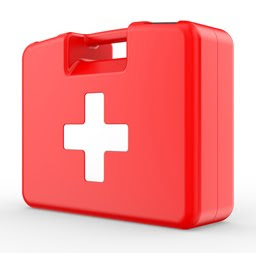 Emergency Essentials: Preparing Your Paperwork and Personal Information for an Emergency
Emergency Essentials: Preparing Your Paperwork and Personal Information for an Emergency
We want to focus on family, festivities, and fun during the holidays, but, unfortunately, accidents don’t always take a holiday.
You’ve probably already done the hard part. You’ve set up retirement accounts and various insurance policies to protect your home, your business, your life, and your health. You probably have will and trust documents. Once you’ve identified and accomplished your financial-planning goals, the easy stuff begins.
It is critical that you have easy access to your important documents in the event of an accident, an illness, or even death. They are the difference between financial hardship and recovery and relief.
While it’s hard to get your mind around the idea that bad things can happen, you should take the time to make sure the following emergency essentials are organized and at the ready.
Emergency Essentials: Paperwork
Keep all your insurance policies in a secure location, such as a fireproof safe. Note that some policies cannot be scanned and saved on a web-based database. For example, if you’re filing a life insurance claim, you have to submit the original life insurance policy to receive the death benefit.
Safe-deposit boxes can pose a problem if the bank denies access in the event of death until after the estate is settled. Check with your bank on its guidelines for securing a safe-deposit box to store valuable papers.
The following valuable documents should be organized and stored:
- Automobile insurance policy
- Homeowner’s insurance policy
- Life insurance policy
- Disability insurance policy
- Long-term care insurance policy
- Wills and trusts
- Retirement account statements
Having the policies organized by type will ensure that your financial affairs are handled effectively in the event of an emergency.
Emergency Essentials: Personal Information
In addition to having your important documents organized and accessible, it’s helpful to create lists of vital personal information so that you don’t have to waste time tracking things down or second-guessing.
Keep copies of these lists in a convenient place where everyone can find them, in a secure spot with your important documents, and with an emergency contact or family friend:
- Dates of birth
- Social Security numbers
- Driver’s license numbers
- Medications currently prescribed
- Allergies
- All insurance policies, with policy numbers and phone numbers
- Phone numbers of professional advisers: insurance broker, investment consultant, accountant, attorney
How have you and your family prepared your emergency essentials? Please share your tips in the comments.
Linda Rey is a licensed insurance agent at Rey Insurance with a broad spectrum of expertise in life, accident, health, property and casualty insurance as well as retirement planning and college funding strategies.
READ MORE:
Summer Toys: Insuring Your Pool, Trampoline, or Boat
Business Insurance Can Help Your Business Grow
Workers’ Compensation Won’t Work For You
FAQs About Disability Insurance






